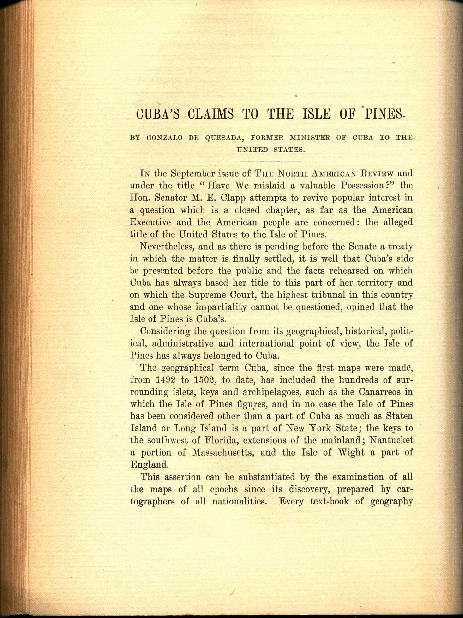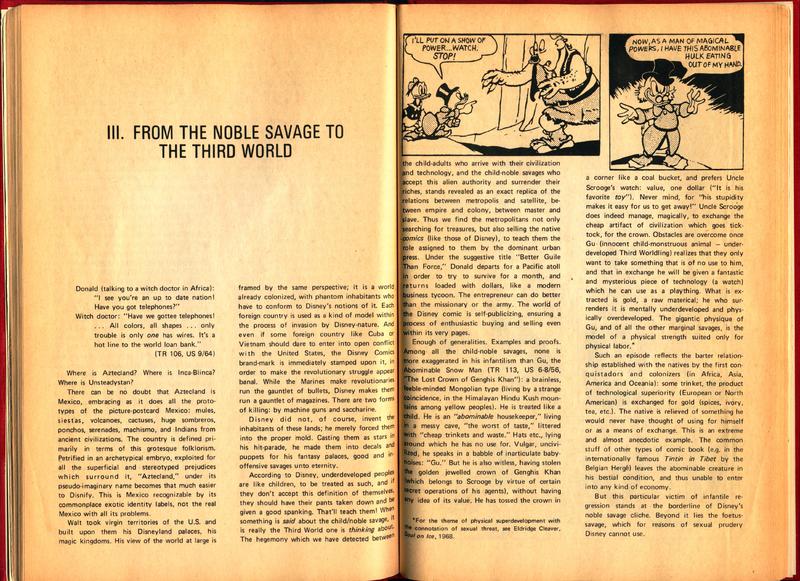Communities of Resistance

Some forms of media have directly challenged or resisted authoritative power in Latin America, whether it be a present government or foreign imperialism. This section shows three examples of publications that exemplify these forms of resistance, particularly against U.S. intervention in Latin America. The texts showcase different formats of resistance, whether it be in a government-backed propaganda pamphlet or a book banned by its own country of origin. While their individual goals are different, all of these texts sought to unify communities by rejecting external powers.
Gonzalo de Quesada’s scholarly journal article advocates for the Isle of Pines to be an independently Cuban island, free from American colonization. Similarly, Fidel Castro’s propaganda pamphlet “A un pueblo así, hay que respetarlo” attempts to unify the common people towards Castro’s nascent regime and away from U.S. influence by invoking the idea of revolutionary struggle. Not all forms of resistance receive the same structural support, however. “How to Read Donald Duck,” for example, was banned in Chile, its country of publication, for speaking out against the Pinochet dictatorship, and U.S. influence in general.
Objects included are:
Cuba's Claims to the Isle of Pines

